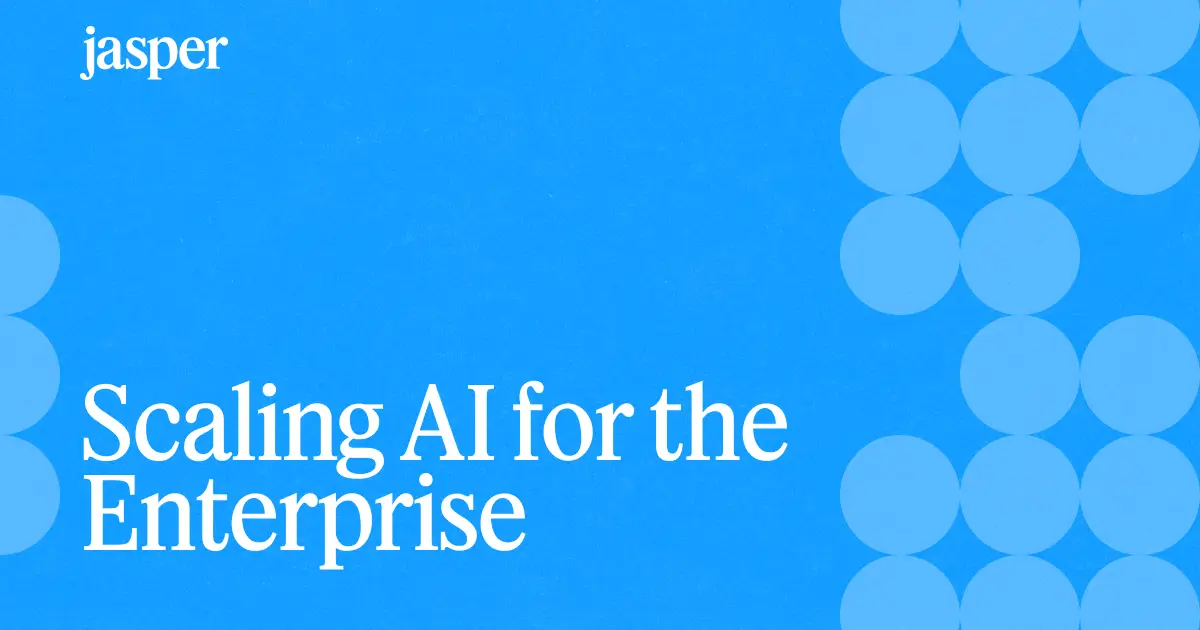How AI is Reshaping SEO for the Next Era of Search
Explore how AI capabilities are transforming online search, how it’s impacting the user experience, and actionable ways for marketers to keep pace with the change.

For decades SEO strategy has centered around keyword placement and snagging top-ranked blue links on Google. But today, like nearly every other aspect of the online experience, search is transforming through artificial intelligence.
AI and SEO have converged to deliver a more conversational experience for search users. In the past, users searched for resources to help answer their queries. Now, they expect answers to appear at the top of the page, curated uniquely to their query.
User behavior data supports the shift. Google impressions are up 49% YOY, according to new data, but click-through rates are down as users look increasingly to AI Overviews for answers.
For marketers, that means the primary goal isn’t just to rank on page one, but to be included in the AI-powered responses. Marketers are taking note, and many have taken action. According to Jasper’s 2025 State of AI in Marketing Report, 49% of marketers already use AI for SEO, and the number jumps even higher for content marketers (55%) and CMOs (59%).
To keep their brands visible and relevant on search platforms, marketers must understand the ways AI has already changed the SEO landscape, traditional SEO pillars that still matter, and how to evolve alongside new developments in the future.
What’s changed with AI and SEO
The way people interact with search tools has changed. Instead of inputting keyword queries, users are having conversations. Chatbot and voice assistant tools have accelerated this shift to natural language.
Instead of searching for “best marketing software,” for example, a user might ask “What are the top-rated marketing software tools for enterprises?” and follow up with “Which ones integrate best with Wordpress?” within the same session.
Modern search tools can now understand the intent behind inquiries like these and use past and current data to deliver accurate, personalized responses. Marketers must also shift from prioritizing keywords to user intent and align with conversational search trends. This impacts all stages of the customer journey:
- Early-stage research queries that once relied on generic keywords now favor deep, contextual answers that guide decisions.
- Mid-funnel prospects expect AI-generated summaries that compare options or highlight pros and cons in a single view.
- Bottom-funnel searches turn into transactional prompts—think “Renew annual subscription for project management software” voiced through a smart speaker.
Technical adjustments are critical, too. Schema markup and rich snippets help AI tools identify and surface precise answers. Generative engine optimization (GEO) tags content to ensure AI answer engines can lift the right text for snippets. Concise and contextual lead paragraphs serve as mini-answers that drive both AI summaries and click-throughs.
From an engagement perspective, visibility in AI overviews and summaries is imperative going forward. Google itself reports most click-throughs are happening via top-of-page AI summaries and that they’re higher quality (i.e. convert better) than traditional organic clicks.
What stays the same
Alongside the many changes AI and SEO’s convergence is bringing to marketing strategy, some familiar pillars of search optimization remain constant.
EEAT content quality framework
Google’s EEAT framework ensures that users see content that’s both aligned with their search intent and high in value.
- Expertise: Content that demonstrates deep subject-matter knowledge signals to AI models and users alike that the information comes from a qualified source.
- Experience: First-hand accounts, case studies, and real-world examples show practical application and keep content rooted in genuine interaction.
- Authoritativeness: When reputable references cite your work, search engines and AI systems interpret those links and mentions as evidence of your authority.
- Trustworthiness: Clear attribution, transparent sourcing, and prompt updates ensure that AI-driven snippets and traditional search results rely on your content.
Human storytelling
Content grounded in genuine human experience still provides the contextual richness that AI-generated responses lack. By conveying the context behind decisions and outcomes, human storytelling adds depth and emotional resonance that sustain audience engagement beyond factual accuracy. Keeping human connection at the center of content development and creation is still crucial for SEO in the future.
Balancing automation with authenticity
Intelligent automation tools excel at helping brands scale important SEO practices like metadata management, keyword trend analysis, and performance tracking. But the nuanced judgement required to stay authentic and true-to-brand still depends on human oversight. As marketers aim to make processes more efficient, keeping humans at the center of SEO strategy is still key.
The future of SEO with AI agents
AI agents—one of the most transformative AI developments so far—are poised to transform SEO even further into a continuously-executed process. Instead of relying on periodic audits or reporting, agents are making it possible to monitor SEO performance at scale to spot shifts in rankings, click-through anomalies, and emerging query patterns.
Most importantly, they can use defined rules and machine learning to adjust SEO tactics in real time. This might mean changing content structures, metadata, and keyword placement to align with changing search behavior or address issues that arise.
Routine duties like updating title tags, refreshing schema markup, or generating performance dashboards can become automated workflows. As a result, human SEO teams can stay focused on strategic planning, creative concepting, and high-impact experimentation rather than manual maintenance.
Looking further ahead, AI agents will integrate seamlessly with content management and analytics platforms to drive end-to-end SEO automation. We can expect agents will suggest new content opportunities based on predictive insights, orchestrate A/B tests of page elements, and personalize on-page messaging according to user segments.
The outcome? A more scalable, precise SEO ecosystem where each adjustment reflects both data-driven recommendations and an understanding of broader brand objectives.
Looking ahead: An AI-driven SEO future
The transformation of online search into an AI-powered dialogue is a real turning point for digital marketing. Rising conversational queries and automated optimization workflows require a dual approach: maintain the credibility of human expertise while also embracing the efficiencies of AI systems. Brands that master this balance will gain significant competitive advantage.
Domain-specific marketing AI tools like Jasper are pivotal to successfully embracing the future scope and scale of SEO without sacrificing brand alignment. With features and capabilities developed specifically for marketers, Jasper can help you scale SEO content, leverage insights from real-time data, and automate workflows while staying connected to your core audiences and true to what makes your brand unique.
Dive deeper into how AI agents are transforming marketing workflows.
More of the latest & greatest

Scaling AI for the Enterprise: How Marketing Leaders Drive Impact
High-performing marketing teams are scaling AI with structure and strategy. Learn how CMOs can lead the way to drive organization-wide impact.
July 1, 2025
|
Megan Dubin

Reflections from Cannes: Why Brand and People Still Matter Most in the Era of AI
At Cannes Lions 2025, one truth stood out: brand, trust, and authenticity are making a powerful comeback.
June 24, 2025
|
Loreal Lynch

Interactive Tool: Benchmark Your AI in Marketing Strategy
Discover your marketing team's AI maturity. Benchmark your strategy, compare with peers, and uncover gaps with an interactive tool.
June 17, 2025
|
Megan Dubin







